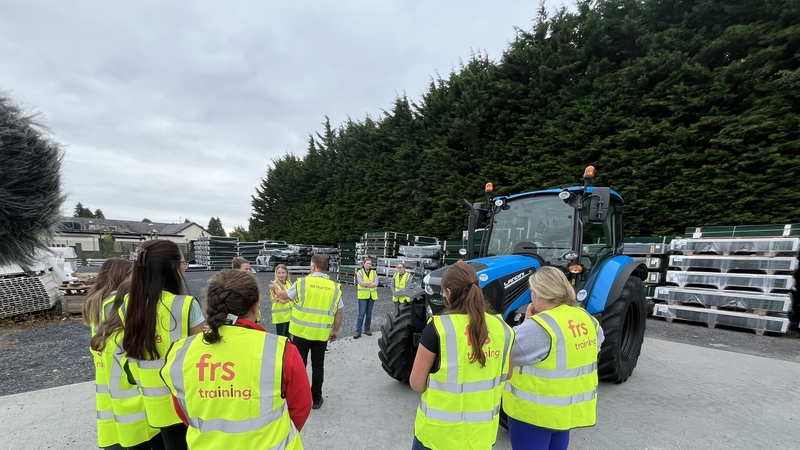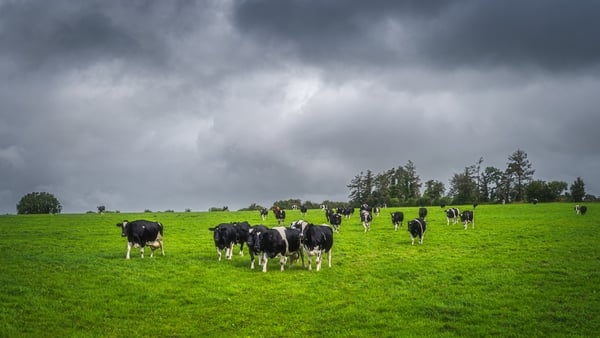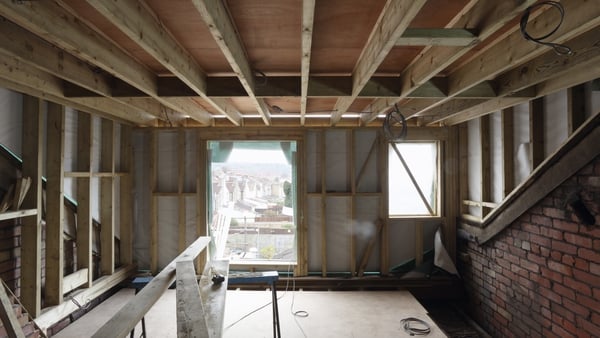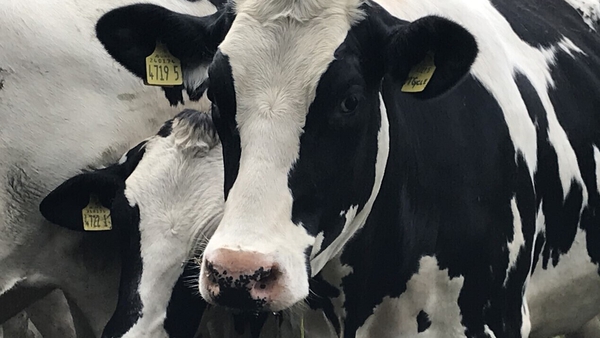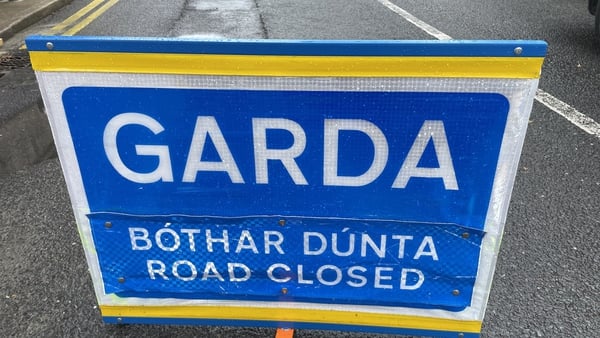For many years farming in Ireland was male dominated and females took on secondary roles.
Nowadays, many women carry the same workload as their male counterparts and they are getting trained up too.
Agriculture Correspondent Joe Mag Raollaigh visits a special female-only tractor training course in Co Tipperary.
In a training facility in Roscrea, female tractor drivers spend the day improving their skills and their knowledge of modern tractors.
Women of all ages from around Ireland attend the course, with all of them active farmers or farm workers.
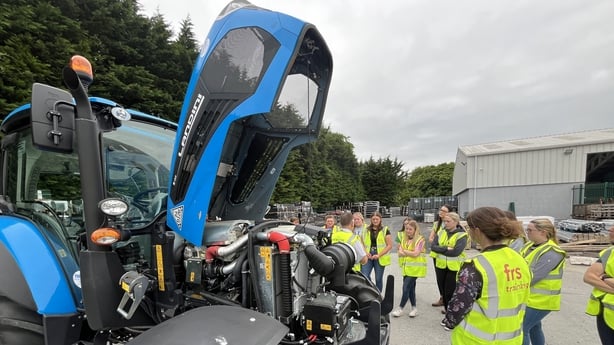
One woman on the course is Kate Ring from Midleton in Cork, who is a nurse as well as being a farmer.
"I work at home with the family farm with my mam and my dad and I also have my uncle as well who has a hearing impairment, so I suppose it's particularly around him it's very important to have a good safety knowledge of the tractor," Kate says.
"I have no brothers and I farm myself with my own herd too and I work as a nurse as well in the emergency department in [Cork University Hospital], so I see first-hand every day all the accidents coming in and it's experienced farmers and older farmers as well.
"It's very important as tractors are getting bigger and more powerful," she adds.
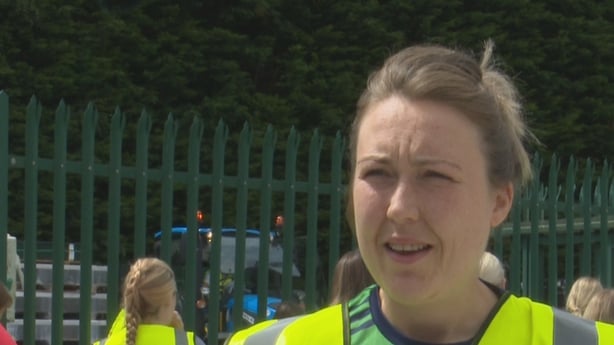
Kate chose this course because she wanted to upskill quickly, but also sees the value in women training together in an area often dominated by men.
"I suppose sometimes women can be kind of intimidated going into a male dominated environment and I suppose this is nice and relaxed. There's no pressure, there's no expectation to know everything."
Another course participant is first year agriculture student and young Carlow farmer, Sara Sheppard, who drives tractors regularly as part of her work.
We need your consent to load this rte-player contentWe use rte-player to manage extra content that can set cookies on your device and collect data about your activity. Please review their details and accept them to load the content.Manage Preferences
"Nearly every day I drive it for different things like spreading fertiliser or topping."
While working with men does not bother her, Sara says she chose the female-only tractor training course "it is easier because people are in similar situations".
"Lads would generally be a lot more confident, and it would be a little bit more intimidating if they're a lot better," she adds.
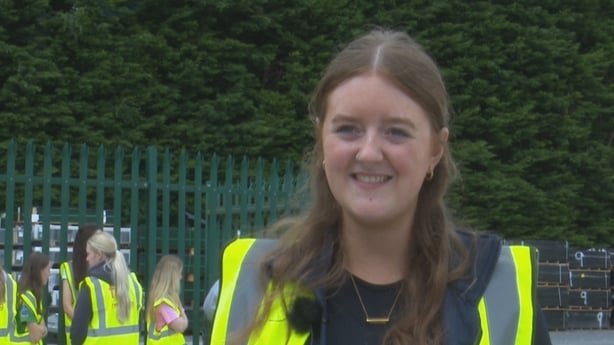
Kaydi O'Neill from Co Dublin is a 19-year-old agricultural science student who works on a neighbour's farm.
She says she was conflicted about a female-only course but also saw value in it.
"I think it is good that there is female ones but I also think there shouldn't be because I think that it should just be open that females should be able to go in and do it with the lads," Kaydi says.
She adds: "I know I'd be very conscious now if I had to walk into a room of lads and they kind of all know what's going on and know what they're doing. But it is good … it's getting the women in agri out there."
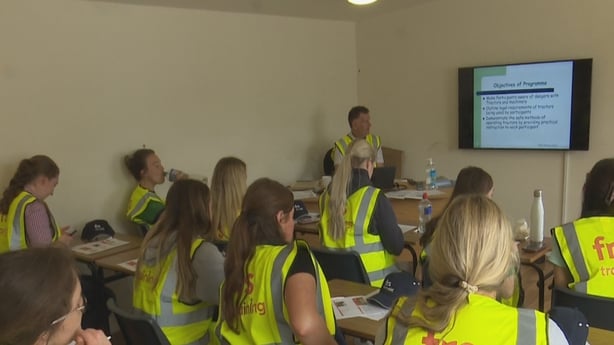
Despite this course being female-only, it is no different from any other tractor training course with lectures and demonstrations on everything from hitching up farm machinery to tractor safety and blind spots and driving and reversing.
Organisers say there is high demand for female-only courses since they held their first one earlier this year.
General manager of FRS Training JulieAnn McCann said in the ten years since they began running safety courses they have seen a increase in demand for female-only courses.
"Through that experience, we started to see a demand for female-only tractor driving and then we decided to launch a pilot course," she explained.
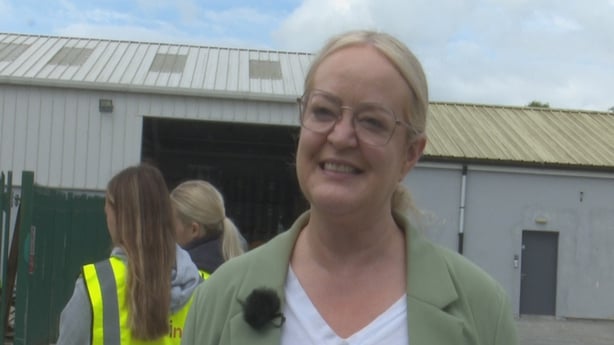
Ms McCann added: "It was around April in Cavan. That was hugely successful, and the demand has grown ever since then.
"The feedback that we're getting from the learners is that they're getting to be in a very hands-on, practical environment but they're learning with their peers, and they're making great connections within their own farming communities as well."
